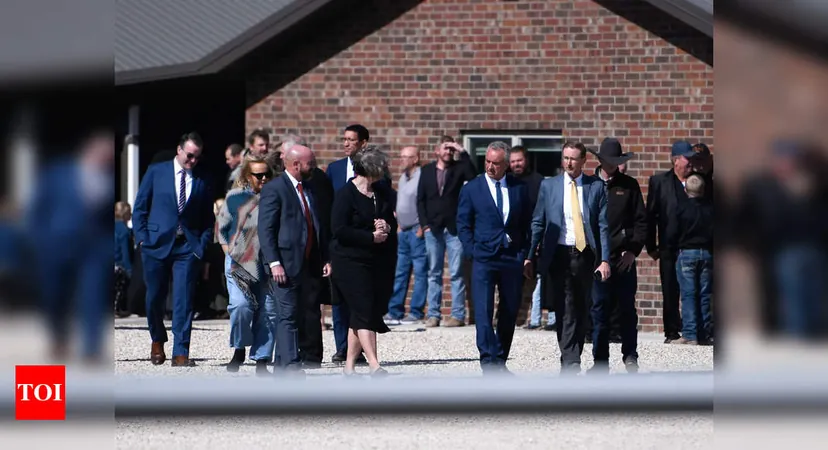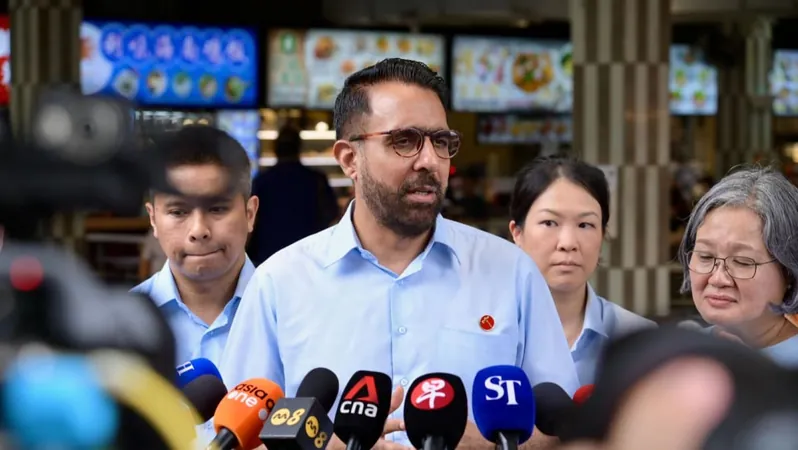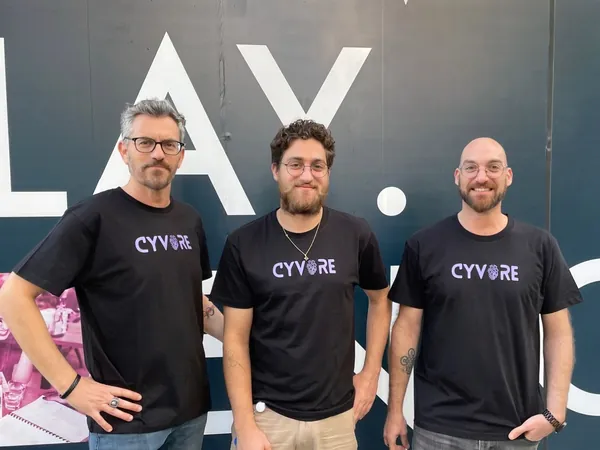
Controversy Erupts as RFK Jr. Visits Families Affected by Measles, Sparks Vaccine Debates
2025-04-09
Author: Wei Ling
In a poignant and controversial visit, Health and Human Services Secretary Robert F. Kennedy Jr. met with families affected by the recent measles outbreak in Texas, where tragic outcomes have shaken the community. The visit comes in the wake of two unvaccinated children, including eight-year-old Daisy Hildebrand, who succumbed to the disease.
Despite his previous vaccine-skeptic stance, Kennedy surprised many by endorsing the Measles, Mumps, and Rubella (MMR) vaccine as the most effective means of preventing the spread of measles. Following his visit over the weekend, Kennedy took to social media to assert, "The most effective way to prevent the spread of measles is the MMR vaccine." However, according to Pete Hildebrand, Daisy’s father, Kennedy did not mention the vaccine's efficacy during their meeting. Hildebrand expressed discontent, stating, “I had supper with the guy… and he never said anything about that.”
Kennedy’s public visit aimed to comfort grieving families and memorialize the loss of children due to preventable diseases. He shared on X (formerly Twitter), “I came to Gaines County, Texas, to console the Hildebrand family after their tragic loss. My aim was to provide support and solidarity in their time of grief.” This statement, while compassionate, raised eyebrows as many in the anti-vaccine community expressed dismay at Kennedy’s new stance.
Reports indicate that measles cases have risen dramatically in the U.S., with the World Health Organization (WHO) emphasizing that vaccination is the safest way to prevent infection. As of early April, the U.S. has documented 642 confirmed measles cases across 22 states, with 499 in Texas alone, reflecting a significant surge compared to the previous year’s total of 285 cases.
Contrary to Kennedy's endorsement, Hildebrand remains skeptical of vaccines. He claimed that some vaccinated family members experienced more severe measles infections than his unvaccinated children. Nonetheless, public health officials contend that vaccination significantly reduces the risk of severe outcomes associated with measles.
Kennedy's shift may be a response to mounting health crises and a more informed public. Political leaders and health experts are closely monitoring his statements, as they could spark further discussions regarding vaccination policies and public health initiatives amid rising measles cases.
As the debate unfolds, it's clear that this visit has reignited a passionate discussion about the efficacy of vaccines and public health responsibility in the face of preventable diseases. Health officials stress the importance of community immunity in combating outbreaks, making this dialogue ever more critical.



 Brasil (PT)
Brasil (PT)
 Canada (EN)
Canada (EN)
 Chile (ES)
Chile (ES)
 Česko (CS)
Česko (CS)
 대한민국 (KO)
대한민국 (KO)
 España (ES)
España (ES)
 France (FR)
France (FR)
 Hong Kong (EN)
Hong Kong (EN)
 Italia (IT)
Italia (IT)
 日本 (JA)
日本 (JA)
 Magyarország (HU)
Magyarország (HU)
 Norge (NO)
Norge (NO)
 Polska (PL)
Polska (PL)
 Schweiz (DE)
Schweiz (DE)
 Singapore (EN)
Singapore (EN)
 Sverige (SV)
Sverige (SV)
 Suomi (FI)
Suomi (FI)
 Türkiye (TR)
Türkiye (TR)
 الإمارات العربية المتحدة (AR)
الإمارات العربية المتحدة (AR)